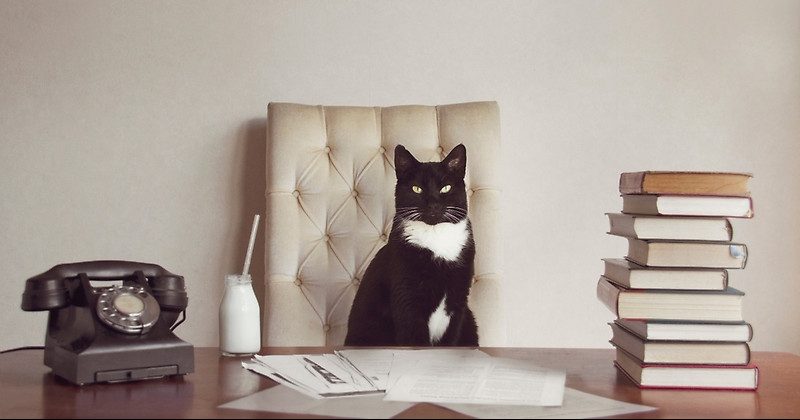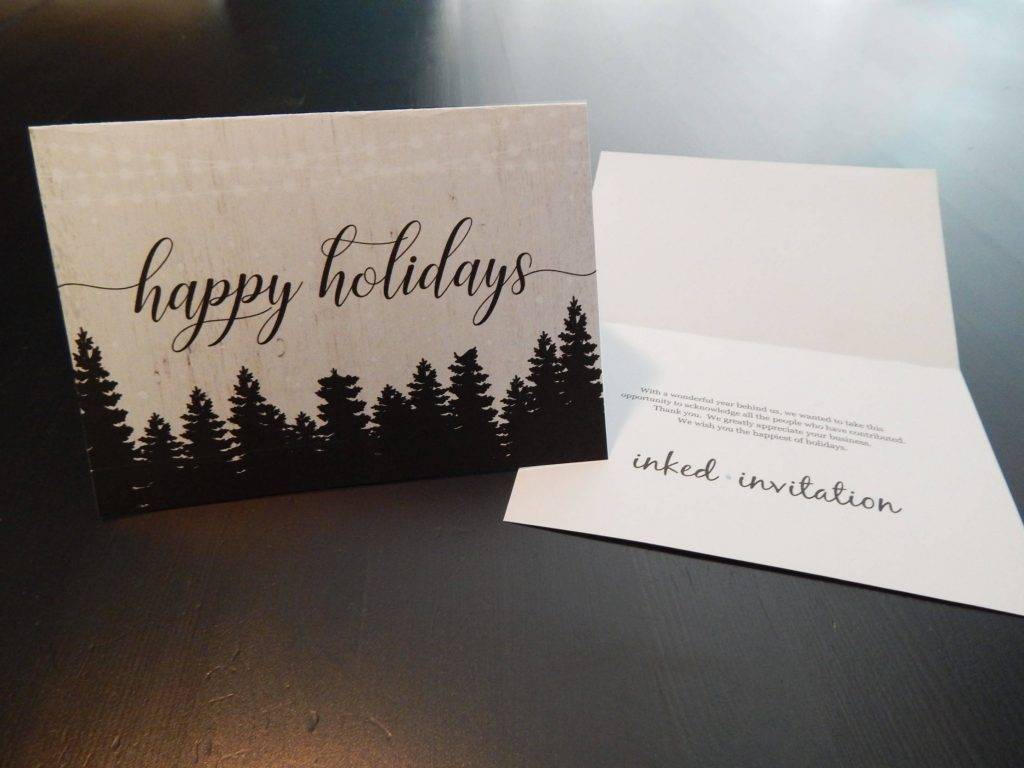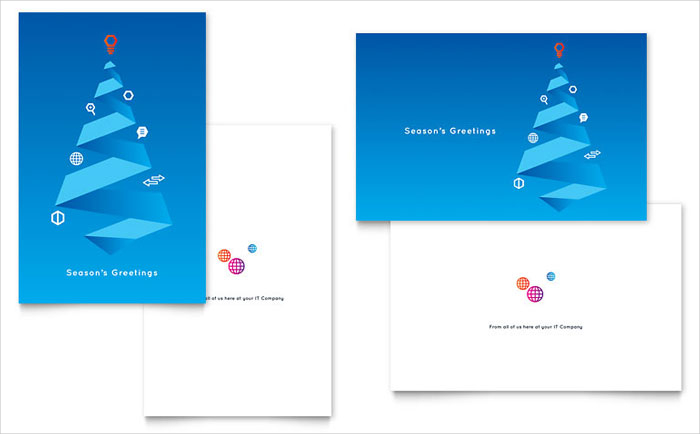14+ Corporate Greeting Card Examples to Download
The moment we hear the word “corporate,” we often associate it as to intensive work and money, money, money. Most people would like to enter the corporate world because of the tight competition and striving is the key to survival. We all know a person or two who is or are very devoted to working in the corporate world, right? There is really nothing wrong with working in a corporate society. In fact, it will help you to grow more and push beyond your limits. It also motivates you to do more than you’ve done and gone beyond other’s expectation. It is working hand in hand with your colleagues to achieve common professional goals, which the enhancement, growth, and sustainability of the whole company.
Working in a corporate world requires a very long patience and hard work. Hence, if you know someone who is very diligent in their work, you can send them best greeting cards to remind them to take a break from the job or just to take a fresh air and pause from the work for a moment. Below are the examples or corporate greeting cards that are a must-check.
You may also check other greeting cards as well:
Examples of Corporate Greeting Cards
Corporate Cat Vintage Greeting Card

Corporate Cat Greeting Card

Corporate Thank You Card Template

Chalkboard Holiday Greeting Printable Corporate Greeting Card

Corporate Cthulhu Greeting Cards

Printable Corporate Christmas Greeting Card Template

Non-Photo Corporate Holiday Card

Personalized Corporate Christmas Cards

Corporate Season Greeting Card

Customized Corporate Holiday Card

Simple Corporate Greeting Card

Corporate Building Greeting Card

Types of Corporate Culture (That You Must Know Before Applying Into a Certain Company)
When you are working in a corporate industry, you might already be familiar with the different types of corporate culture that are running within your company. What is corporate culture, by the way? It is the traditions, beliefs, and ideas that your company possesses and that is practiced by the employees. It affects the perception of the public as well as the satisfaction of an employee to his or her job. Usually, the industry of the company is a great influence to its corporate culture, but it is not always the case, as a corporate culture can still be altered, for no corporate culture is ever stable. You may also see Blank Greeting Card Examples.
Here is a short description of each of the corporate culture of a company. A company may possess one or more of each type, and there are no two companies with very similar corporate culture. You may also see Business Greeting Card Designs.
1. The Comrade (Team-First Corporate Culture)
Entities with this type of culture prioritize its employees first through organizing frequent team outings, gathering helpful feedback, and even accommodating the employees’ families as well. They will create programs that are not only limited to the employees but are extended to the families of those employees. So, why would a company invest in their workforce that much? Why would they spend so much in satisfying their employees and making them happy? Because it is believed that a happy employee can make a happy customer. They can satisfy customers if they are happy enough with what they are doing right now. They can even recommend other people to work in the same company if they are really satisfied with the company’s provided incentives. They will have more energy and be constantly motivated in going to work, making them more productive. You may also see Vacation Greeting Card Examples.
There are several characteristics of a company with a comrade culture. They are as follows:
- The employees know each other and are friends even with the people in the other departments.
- The team socializes with each other even outside work. They may go to parties together or schedule a time for hanging out.
- The feedback from the surveys regarding anything from your company is truthful and thoughtful. They will also get excited in each survey that comes. You may also see Rustic Greeting Cards.
- The employees take pride in their workstation as well as the company they are working. They will talk (or even boast) about their company to their family and friends, and they are not ashamed of their work. They will be happy if someone else will apply in their company for an additional comrade.
- They treat each one as not just mere friends but as a family outside a home.
2. The Athlete (Elite Corporate Culture)
The perfect definition of an elite corporate culture is a company that pushes through to make a great difference and to changes the world. A company with an elite corporate culture hires only the best because they are very particular in quality. They do not want employees who cannot easily cope up with their fast pace, and they do not want to drag someone just to keep up their pace. They are more on researching to develop novel ideas and are very innovative and daring. They aim for fast growth and big splashes in the market. Think, for example, Google. They have a very compact team of exceptionally brilliant minds who would dare to go overboard and beat the odds. Because the employees are very dependable enough and intelligent, they keep on seeking for innovative researchers and does heavily rely on the upper management’s command. However, this may be the reason for competition among employees, giving them the pressure to fight heads on. You may also see Floral Greeting Card Examples.
The characteristics of a company with an athlete culture are as follows:
- The employees are bold and are not afraid to ask and clarify things and even to give suggestions for the improvement of work.
- The employees do not complain about working long hours because their top priority is work.
- Those who are smart and quick immediately move up the rank.
- Many highly qualified applicants prefer to apply in your field, making it hard to decide on whom to accept especially when there are limited slots.
- People know and respect your company name, your brand name.
3. The Free Spirit (Horizontal Corporate Culture)
In this type of culture, the company is in its young stage, striving to provide their products and services, and is still flexible and willing to adapt to changes based on the market demands. Employees do whatever they can to achieve the goals of the company and to keep the customers happy even though they are just comprised of a small team. The titles of each of employees do not mean much because the employees usually have the collaborative effort for their work. Even positions, too, are not of a great issue such that concerns between the manager and the assistant manager can happen through conversations across their desks and not strictly on emails. The company is in its experimental stage and workers constantly come and go. Thus, every hire of the company counts. You may also see Funny Greeting Cards.
Among the characteristics of a company with a free spirit culture are the following:
- They do not have much of a room.
- Workmates discuss ideas during break time.
- Your pantry is relatively small.
- The manager or CEO makes his or her own coffee.
- You got to prove your offers to the critics.
4. The Traditionalist (Conventional Corporate Culture)
Companies with the traditionalist culture already made it clear the hierarchies at work yet are still not established communicating to the employees. They are not very strict when it comes to implementing rules like the proper dress code and do not quickly dive into risky decisions. The problem of less communication to its employees can be solved, thankfully, through the new technologies introduced in this era. Mails can be immediately sent, and there are other new forms of communication. A possible pitfall for this type of culture is that there is not enough room for experimentation, which can result in possible lack of inspiration to employees. A great way to answer that concern is to make the employees understand the long-term goals of the company as well as the short-term goals of the company.
- Entities with conventional corporate culture possess these characteristics:
- The company, through the upper management, is strict regarding the guidelines for each department and role.
- The employees are focused on the company rules and regulations.
- People coming from different departments are less likely to interact with each other.
- Upper management had the major decisions.
- In the market, the company did not own the center stage.
5. The Nomad (Progressive Corporate Culture)
In this kind of corporate culture, there is a constant transition on the way the company holds its employees, the type of business it holds as an entity as well as the way it deals with the market regarding their demands. Employees often don’t know what to expect next, which is likely a trait of a transitional culture. Examples of change in the type of business are mergers and acquisitions. The transition to other types of business also means a shift to the company’s goals and mission statement and vision statement. This, in turn, will lead to employees questioning the company’s stability and may cause to spread rumors regarding the company. To answer these, the company itself must address those issues and constantly communicate with employees so they would stay longer in the company. Although change is sometimes scary since you are not assured what will happen to the company, this is also a form of risk that a company will undergo to achieve growth and to go beyond what they have already done.
You will know that the company you are working for has a progressive corporate culture if it possesses the following traits: You may also see Animated Greeting Cards.
- Employees ask the management questions regarding the company status.
- Workers openly discuss the competition in the market.
- The company has a high rate of turnover.
- Donors, suppliers, and advertisers are the main sources of the company’s funds.
- A change in the market will have a great impact on the company’s revenue.
Given the above five cultures of a corporate industry, which culture do you think your company identifies with the most? Or does the company you are working for possessing more than one quality? Assess your company well for this may help you in identifying the possible solutions to what your company may be facing right now and will be facing the future. You can even come up with the right and helpful ideas for the betterment of your company. You may also be an avenue of change to your company’s corporate culture and make it something better and worth working for. You may also see Holiday Greeting Cards.
Taking Everything into Account
Most of the world’s worker population today is working in a corporate industry, in which different cultures have been practiced. Depending on the type of industry and the effort of the whole team, the corporate culture helps the public identify your nature and their perception to branding. The different cultures of a company are what it takes for them to grow as a business entity. The five corporate cultures are as follows: the comrade or the team-first corporate culture, the athlete or the elite corporate culture, the free spirit or the horizontal corporate culture, the traditionalist or the conventional corporate culture, and, last but not the least, the nomad or the progressive corporate culture. You may also see Thank You Greeting Cards.
Growing up in a corporate is never too easy or too hard; it is challenging. This is one of the reasons why you need to constantly replenish your energy and be inspired. Hopefully, the greeting cards presented above will put a smile on the face of the people who are in the corporate world.

